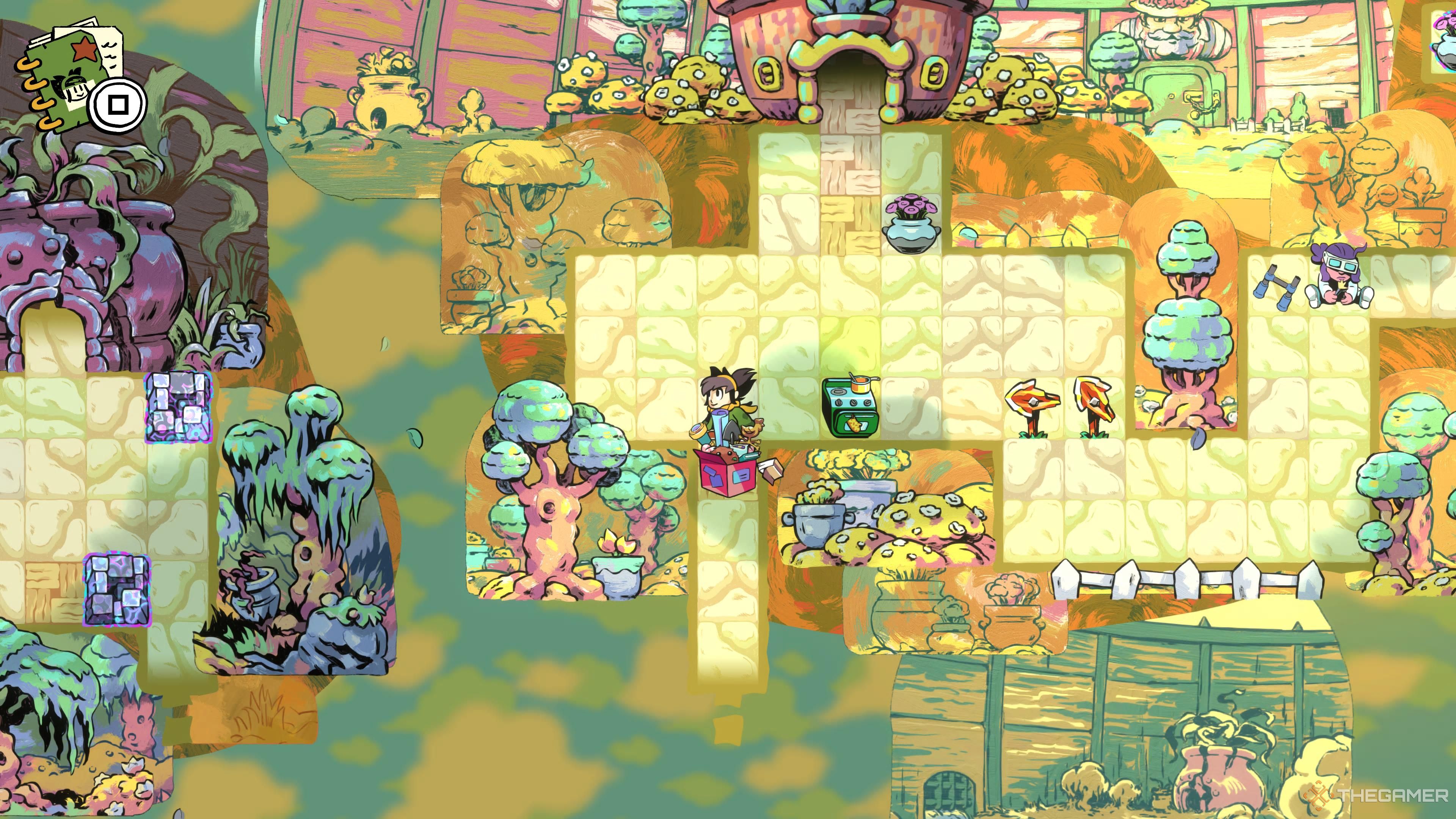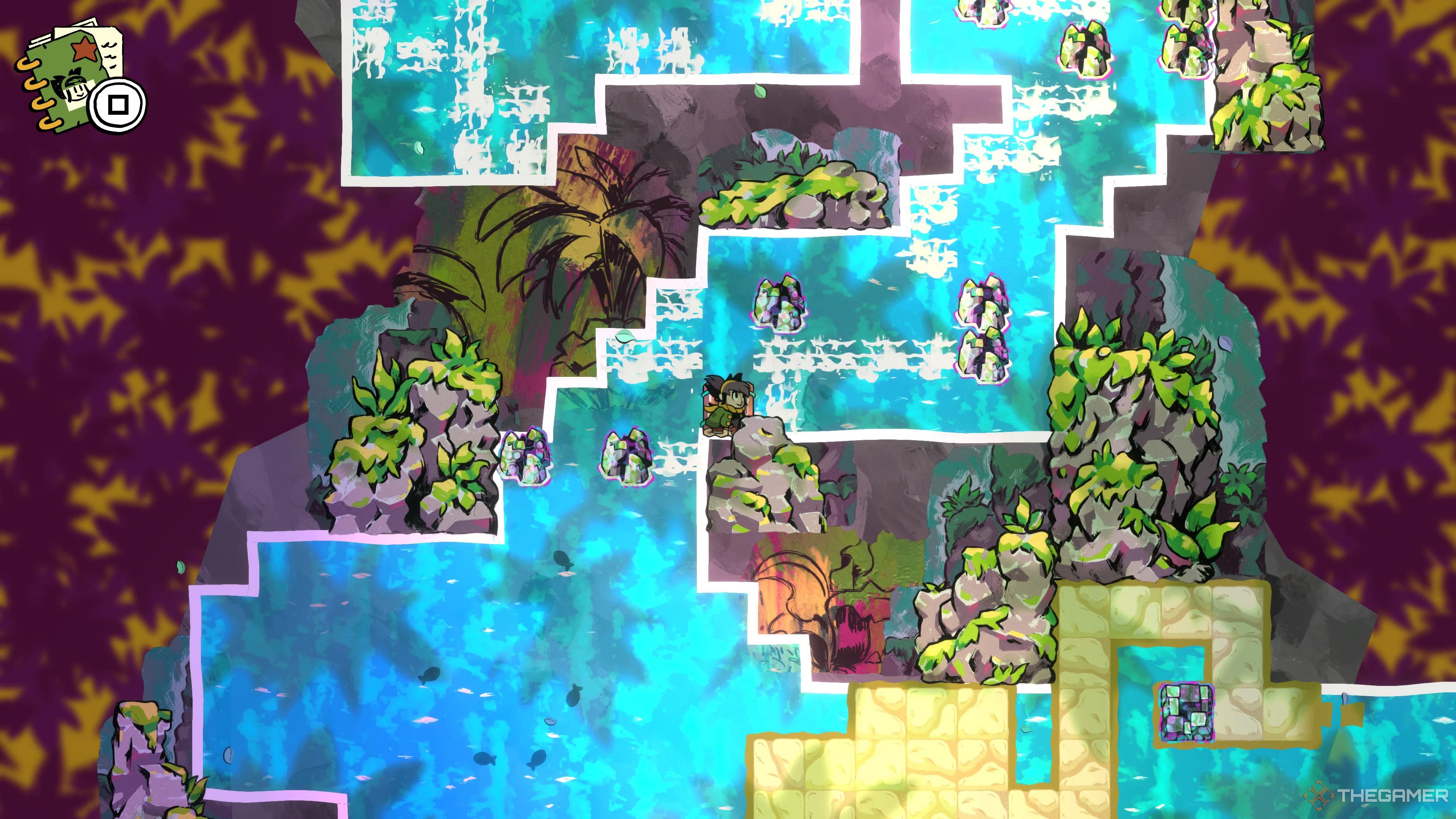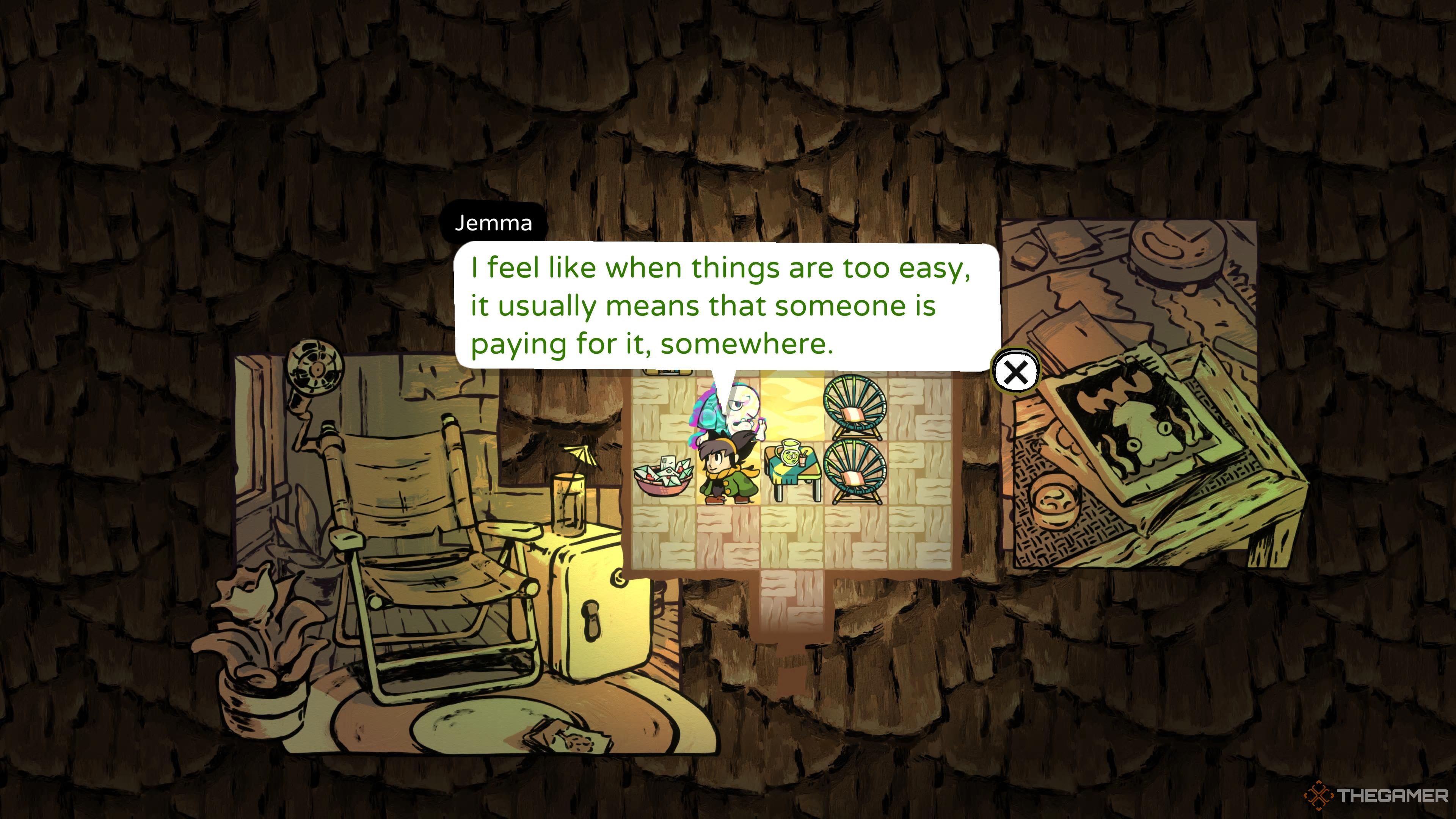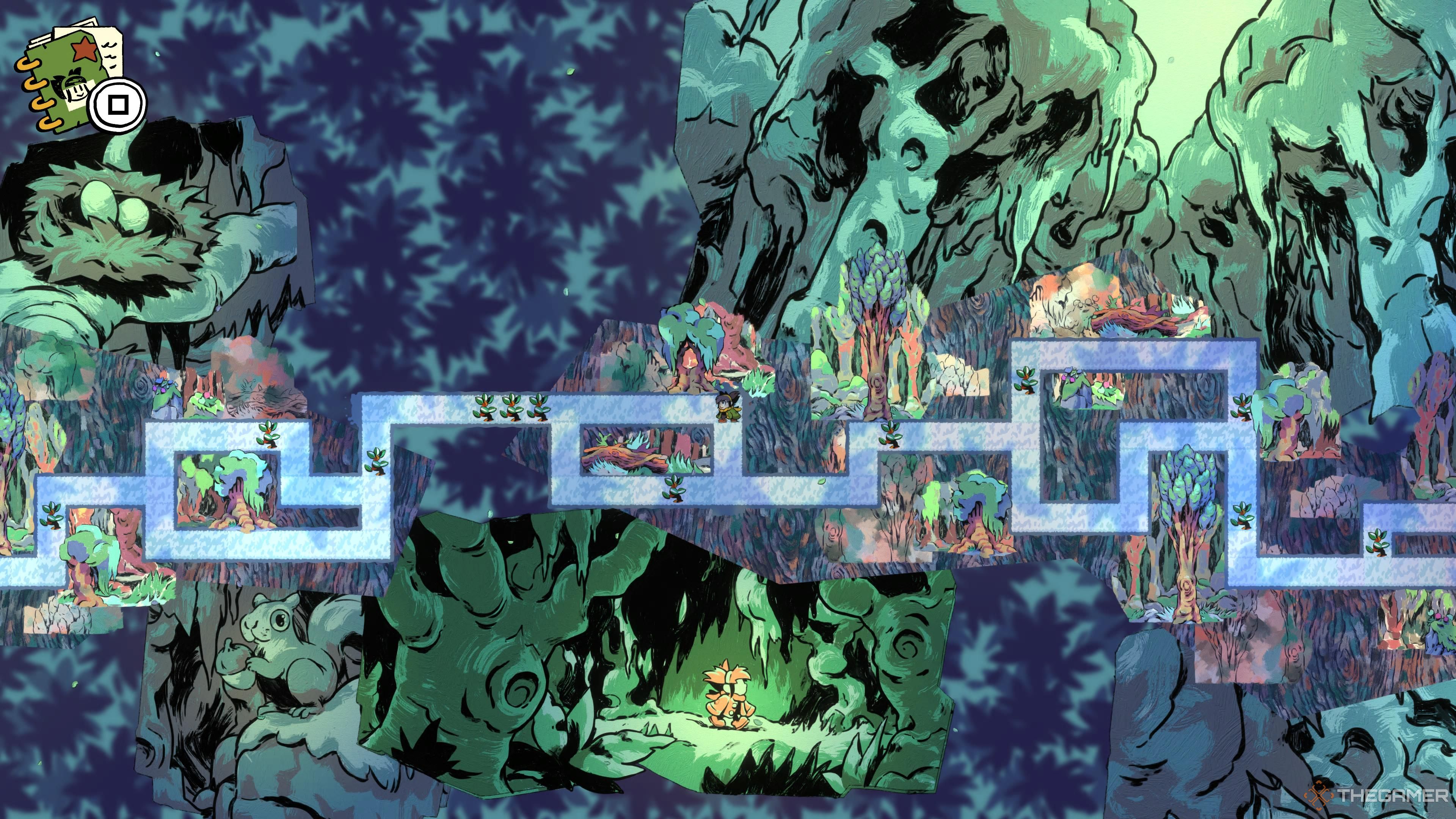After solving the first puzzles of Arranger: A Puzzle-Filled AdventureI realized something: it’s like trying to solve a Rubik’s cube. Each beautiful scenario is made up of rows and columns of squares, and each time you move, you move forward one square and move either the column or the entire row. At the same time, every object that doesn’t have a special property and is on the same row will be moved, even if you don’t touch it directly.
The core gameplay of Arranger is about learning this easy-to-learn but hard-to-master concept, defeating enemies, and reaching the end of each area. If you’re familiar with Rubik’s cubes, you probably know that this means solving algorithms and using group theory to find the best solutions. If you’re not nerdy enough to remember what these math concepts mean or you just hate the colorful cube, don’t leave just yet: you can still have fun in Arranger.
Developer Furniture & Mattress LLC is diligently following a simple game design rule: start slowly, explain the mechanics of the area in the simplest way possible, and then gradually increase the difficulty. Levels will introduce you to objects that can’t be moved, lasers that cross entire lines and must be avoided, water tiles that aren’t connected to any row or column, and characters that follow you around, among other things. The speed at which new variations are offered to you is impressive, always encouraging you to face new twists and turns and apply what you’ve learned.
Arranger doesn’t waste time telling you what to do with tutorials. You enter a scenario, look at the things around you, and are left to your own devices. I love games that throw you right into the action with little to no guidance. After a few hours, I was no longer moving forward by moving one square at a time; I started using the loops on the edges to reach my destinations in just a few moves. This framework isn’t without its caveats, though.
For example, you can enable assistive tools so that markers show you where to go or even ignore certain puzzles entirely. It’s better than having no help at all, and I’d say that almost all of the time it’s pretty clear what you need to do… just not how. Getting a hint that says “you need to move object X next to object Y” would have been better than having an ignore button that completely ruins the experience.
Another interesting decision is to avoid having a “reset” option that puts an area back to the state it was in before you entered. You can accidentally leave key items far from where you need them in the most open areas. Instead of solving the puzzle, you have to figure out how to fix your mistake first. It’s a brave decision that I appreciated, especially when I didn’t have the option to block a progression path, but it’s certainly something that will frustrate many players.
What’s even more remarkable is how Arranger’s gameplay goes hand in hand with its narrative. Protagonist Jemma has never left her hometown. No one around her has: everyone is a little too comfortable with their monotonous lives and doesn’t want to know what else is out there in the world. They’re afraid of being attacked by The Static, an unknown force that’s infecting the land and filling it with deadly monsters.
Its beautifully hand-drawn style never gets old, as what begins as a common story about leaving home behind quickly turns into a depiction of meritocracy, religion, and the workings of capitalist societies, with the rich and powerful at the top and everyone else dancing to the beat of the drums.
Because of Jemma’s innocence and growing understanding of how things work, some scenarios will make you laugh with her naivety and silly one-liners here and there, but others feel a little too blunt. You get messages like “rich = bad” almost literally, which I’m not going to argue with, but I think it would have been more interesting to explore topics like this in a more nuanced way. It’s a tone that feels consistent with the game’s cartoonish presentation, but it can quickly become patronizing.
That’s not to say Arranger isn’t short on clever ideas. Some silly but effective puns like “the Static Quo” made me laugh, and an entire area is the most charming critique of Twitter I’ve seen in a while, with messenger birds invading a small town and forcing everyone to stay home. An invention that was initially created in good faith, but quickly spiraled out of control. Arranger goes even further, arguing that sometimes entertainment may not be the healthy escape we think it is, but a way to remain dumbfounded and never act on the systematic inequalities that we and those around us suffer. It feels like a powerful meta-textual message to interpret when, well, we’re playing a video game.
The main idea that we need to learn to be active, to think about our movements and to try to get out of our comfort zones seems a bit cliché but also comforting. Jemma moves and many things move with her, bringing people together and creating community. She struggles with the anxiety issues of those around her and even her own. She also doesn’t romanticize acting for the sake of acting, with things going wrong and people suffering along the way.
It’s a shame that Arranger’s final act loses some quality when it comes to overall puzzle designs and puzzles. At one point I was in a hurry and the difficulty curve just disappeared. The final boss was a huge disappointment considering the previous encounters you’ve overcome. However, from a narrative perspective it’s pretty brilliant: it’s just three rich dudes who can’t do anything on their own.
Arranger: A Role-Puzzling Adventure is a fun yet frustrating journey that makes you think about both the steps you take in the game and the ones you might or might not take in your real life. It could have been just a little game about a cool and strong mechanic, but it ended up being
Arranger: A Puzzle-Filled Adventure
Tested on PS5
- Beautiful artwork and designs.
- Fantastic gameplay loop.
- A solid narrative base with intelligent and funny portraits of different subjects.
- Its basic mechanics can sometimes become frustrating due to certain design decisions.
- At times the narrative feels condescending.
- The last act drops a bit in quality.
A review code was provided by the publisher.




